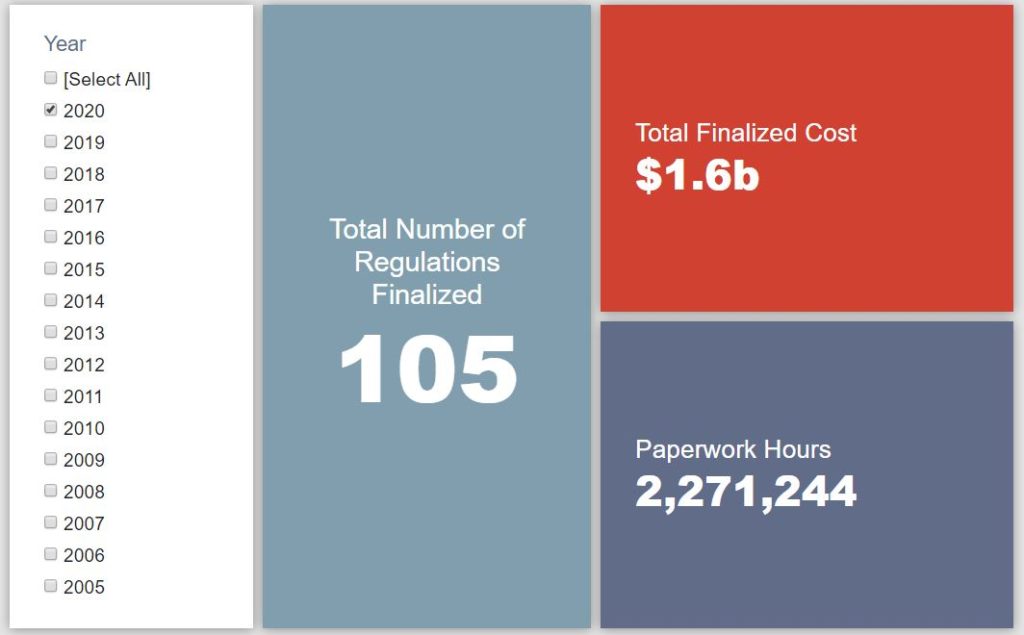Week in Regulation
April 27, 2020
WOTUS Finally Hits the Books
In an otherwise unremarkable week, the administration’s updated “Waters of the United States” (WOTUS) rule made a splash with its official publication. The rulemaking, issued jointly by the Environmental Protection Agency and Army Corps of Engineers, stands as one of the most notable deregulatory measures of the Trump Administration. Across all rulemakings, agencies published $3.3 billion in total net cost savings and cut 24,114 hours of annual paperwork.
REGULATORY TOPLINES
- 2020 Proposed Rules: 39
- 2020 Final Rules: 55
- 2020 Total Pages: 23,171
- 2020 Final Rule Costs: $1.6 billion
- 2020 Proposed Rule Costs: $3 billion
TRACKING THE REGULATORY BUDGET
The most significant rulemaking with regards to the fiscal year (FY) 2020 regulatory budget was the updated WOTUS rule. The American Action Forum broke down the rule’s core implications here when the agencies originally released it at the end of January. Overall, the agencies estimated that the rule would yield $3.2 billion in total savings. In an interesting coincidence, the rule comes during the same week that the Supreme Court delivered an opinion on a case involving groundwater discharges under the Clean Water Act.
The Trump Administration expects to reach $51.6 billion in cumulative net savings in FY 2020. To date in the fiscal year, agencies have officially published 74 deregulatory actions and 24 regulatory actions, totaling $338 million in quantified total net costs. Once the Safer, Affordable Fuel-Efficient Vehicles rule is officially published, the administration-wide total will be $199.1 billion in net total savings.
THIS WEEK’S REGULATORY PICTURE
This week, the Nuclear Regulatory Commission (NRC) exempts a nuclear power facility from some requirements due to COVID-19.

On April 23 the NRC published a notice in the Federal Register that it was granting an exemption regarding some of its emergency preparedness regulations to Duke Energy’s Oconee nuclear power plant in South Carolina.
Specifically, the NRC granted Duke Energy’s request for an exemption to temporarily suspend the requirement of this subsection that each security team member of each shift who is assigned a role in implementing the safeguards contingency plan participate in at least one force-on-force exercise on an annual basis. In a petition filed earlier this month, Duke Energy cited its pandemic response plan, which aims to limit exposure of employees to one another as much as possible.
The NRC found that the exemption is allowable by law, would not endanger life or property, and is otherwise in the public interest. It made this determination because of specified steps Duke Energy said it would take to ensure security and that limiting the possible spread of COVID-19 among the Oconee facility’s staff is necessary to ensure the safe operation of the plant.
The exemption expires “no later than 90 days following the lifting of the state of emergency declared on March 13, 2020, by the State of South Carolina, or December 31, 2020, whichever occurs first.”
TOTAL BURDENS
Since January 1, the federal government has published $4.5 billion in total net costs (with $1.6 billion in finalized costs) and 16.9 million hours of net annual paperwork burden increases (with 2.3 million hours due to final rules). Click here for the latest Reg Rodeo findings.












